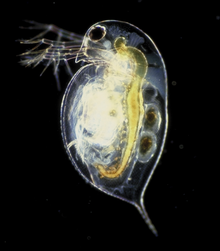Isn't extrapolating trends outside your interval of observation one of the big no-no's in statistics? In other words, just because the complexity of life has followed Moore's Law during the interval we observe, doesn't mean the same is true outside that interval. These results are interesting, though, if you are willing to make that leap.
Definitely there could be some phase switching that occurred. Say, some period of explosion of complexity in the beginning of life that we just don't have any data about. However, even if this guy's hypothesis isn't "true", it's still interesting to consider. Always good to think outside the box sometimes. Even if you miss the mark, you still may get some other insight.
Here's the PDF. Perusing through it, they seem to say more than just that. At first glance, it seems to boil down to whether or not their measure of complexity is a valid one, and if this complexity maps to current known evolutionary timescales. Evolutionary genetics gives us data for this as far as I know. Their measure of complexity is: Sharov is one of the authors here. Here is the source cited, it's a slide deck and the last two slides are basically the figures in this article. Although the idea would be a very satisfying way to deal with the apparent celestial silence, since the authors couldn't find a better source for a measure of complexity, it's my guess that that they just have that slope wrong.measured by the length of functional non-redundant DNA per genome counted by nucleotide base pairs (bp), increases linearly with time (Sharov, 2012).
I'm going to have to give this PDF a closer look later in the day. Are you saying that length of functional non-redundant DNA per genome is a poor measure of complexity? PS - I LOVE OPEN ACCESS. It needs to happen on a larger scale quicker.
but seriously is the difference between us and the other apes our functional non-redundant DNA per genome or the qualities of our phenome?
then I will have to come down as one opposed to the metric as it does not put my favorite on top.
I can't say. I just would assume that evolutionary geneticists would have weighed in on the matter one way or the other. Maybe I am wrong. It's one critcal component of this hypothesis.Are you saying that length of functional non-redundant DNA per genome is a poor measure of complexity?
My biggest question re: this issue would be do we even have an adequate grasp of functional non-redundant DNA per genome? The ENCODE project just revealed that DNA formerly considered junk is actually functional. I personally don't know what the best approach is to measure complexity in evolution, however I do understand the central idea that the authors are trying to convey.
I've actually never understood why it's almost always assumed that we're not the most advanced species in the galaxy. Since presumably some species has to be the most advanced, it seems quite reasonable to imagine that it might be us.
It is actually something that I have considered to be highly probable for a few years. And now with the estimate of 100 billion earth-like planets in the Milky Way alone, I think that probability should be raised a little higher.
